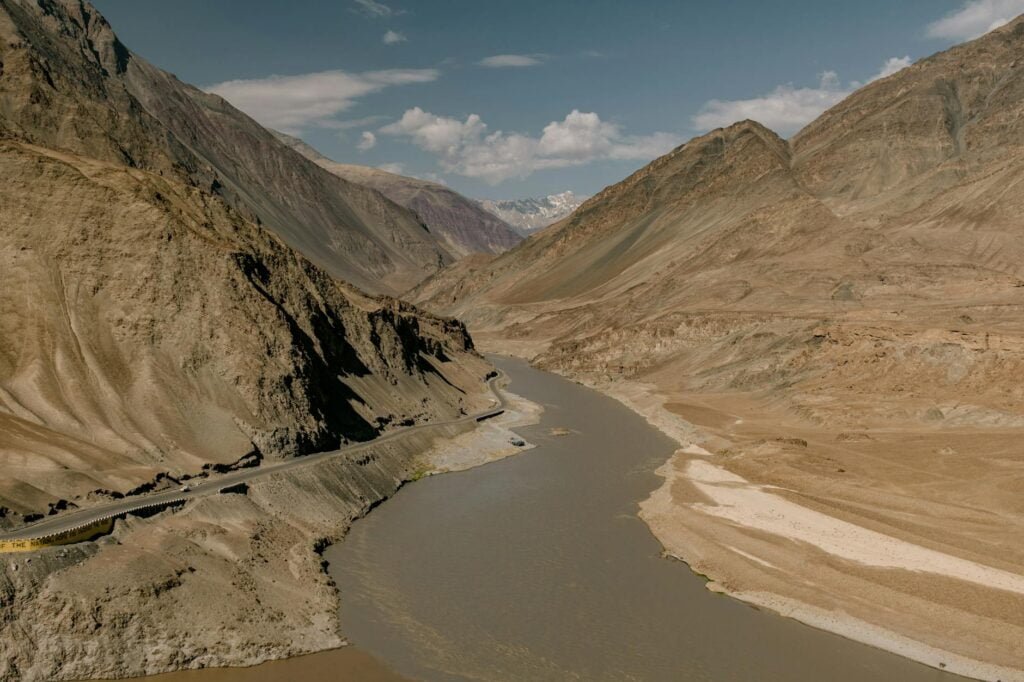The Indus Water Treaty (IWT), signed in 1960 between India and Pakistan with the World Bank as a signatory, has been heralded as one of the most successful water-sharing agreements globally. However, recent developments have prompted India to seek modifications to this longstanding treaty, highlighting evolving geopolitical, environmental, and strategic considerations.
India’s Formal Notice
On August 30, 2024, India issued a formal notice to Pakistan, invoking Article XII(3) of the IWT, which allows for the treaty’s modification. This move comes after years of what India describes as Pakistan’s obstructive behavior regarding projects on rivers allocated to India and the need to address new challenges not foreseen in 1960.
Key Points of Contention and Modification Requests:
- Water Allocation and Usage:
- The original treaty allocates the waters of the eastern rivers (Sutlej, Beas, and Ravi) to India, roughly 33 million acre-feet (MAF) annually, for unrestricted use. Conversely, Pakistan receives about 80% of the Indus system’s water, primarily from the western rivers (Indus, Jhelum, and Chenab). India now seeks a reassessment of this distribution due to increased water needs for its growing population and agricultural demands.
- Hydroelectric Projects and Clean Energy:
- India’s push towards clean energy to meet its emission targets has led to a demand for greater flexibility in using the western rivers for hydroelectric power generation. The current treaty allows for run-of-the-river projects, but India desires modifications to expand these provisions.
- Security Concerns:
- India has cited the impact of cross-border terrorism from Pakistan as a significant impediment to the treaty’s smooth operation. This security dimension adds a layer of complexity, suggesting that water issues cannot be divorced from broader geopolitical tensions.
- Dispute Resolution Mechanisms:
- The functioning of the Permanent Indus Commission and the mechanisms for dispute resolution, including the roles of Neutral Experts and the Court of Arbitration, have come under scrutiny. India believes these mechanisms need reevaluation to be more effective and reflective of current realities.
Implications and International Perspectives
- Environmental and Climatic Changes: The modification request also implicitly acknowledges the impact of climate change on water availability, which was not a significant consideration in 1960.
- Strategic Implications: This move could recalibrate India-Pakistan relations, potentially affecting not just water sharing but broader diplomatic and security dialogues. The world watches closely, as changes to the IWT might set precedents for international water treaties.
- Global Water Law: India’s action might prompt discussions on how international water treaties should evolve with changing political, environmental, and demographic landscapes.
Public Sentiment and Political Discourse
Posts on platforms like X (formerly known as Twitter) reflect a mix of nationalistic fervor, environmental concern, and strategic analysis. There’s a sense that this modification effort is part of a broader push by India to assert its rights more vigorously on the international stage, correcting what some see as historical imbalances.
India’s call for the modification of the Indus Water Treaty encapsulates more than just water sharing; it’s about sovereignty, sustainable development, and security in a region fraught with historical tensions. While the immediate future of this request remains uncertain, it underscores the need for international agreements to be dynamic, adapting to new challenges and realities. Whether or not Pakistan agrees to these modifications, the dialogue around the IWT will likely influence future water treaties and international law regarding shared water resources.
